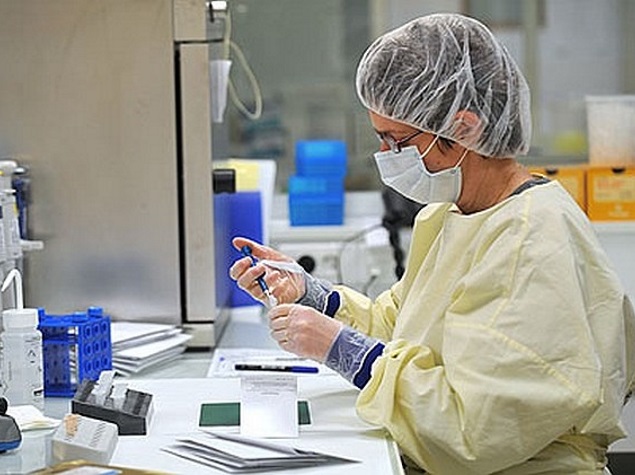- Home
- Science
- Science News
- Stem Cell Implant Found Effective Against Parkinson's Disease Symptoms
Stem Cell Implant Found Effective Against Parkinson's Disease Symptoms

The findings published in the journal Frontiers in Cellular Neuroscience could be an important step toward using the implantation of stem cell-generated neurons as a treatment for Parkinson's disease in humans.
Using a US Food and Drug Administration (FDA)-approved anti-cancer drug, the researchers were able to grow dopamine-producing neurons derived from embryonic stem cells that remained healthy and functional for as long as 15 months after implantation into mice, restoring motor function without forming tumours.
"This simple strategy of shortly exposing pluripotent stem cells to an anti-cancer drug turned the transplant safer, by eliminating the risk of tumour formation", said the leader of the study Stevens Rehen, professor at the Federal University of Rio de Janeiro (UFRJ) in Brazil.
Parkinson's, which affects as many as 10 million people in the world, is caused by a depletion of dopamine-producing neurons in the brain.
Several studies have indicated that the transplantation of embryonic stem cells improves motor functions in animal models. However, until now, the procedure was shown to be unsafe because of the risk of tumours upon transplantation.
To address this issue, the researchers for the first time pre-treated undifferentiated mouse embryonic stem cells with mitomycin C, a drug already prescribed to treat cancer.
The substance blocks the DNA replication and prevents the cells from multiplying out of control.
The researchers used mice modelled for Parkinson's. Unlike the control group, animals receiving the treated stem cells showed improvement in Parkinson's symptoms and survived until the end of the observation period of 12 weeks post-transplant with no tumours detected.
Four of these mice were monitored for as long as 15 months with no signs of pathology.
Furthermore, the scientists have also shown that treating the stem cells with mitomycin C induced a four-fold increase in the release of dopamine after in vitro differentiation.
Catch the latest from the Consumer Electronics Show on Gadgets 360, at our CES 2026 hub.
Related Stories
- Samsung Galaxy Unpacked 2025
- ChatGPT
- Redmi Note 14 Pro+
- iPhone 16
- Apple Vision Pro
- Oneplus 12
- OnePlus Nord CE 3 Lite 5G
- iPhone 13
- Xiaomi 14 Pro
- Oppo Find N3
- Tecno Spark Go (2023)
- Realme V30
- Best Phones Under 25000
- Samsung Galaxy S24 Series
- Cryptocurrency
- iQoo 12
- Samsung Galaxy S24 Ultra
- Giottus
- Samsung Galaxy Z Flip 5
- Apple 'Scary Fast'
- Housefull 5
- GoPro Hero 12 Black Review
- Invincible Season 2
- JioGlass
- HD Ready TV
- Laptop Under 50000
- Smartwatch Under 10000
- Latest Mobile Phones
- Compare Phones
- OPPO Reno 15 FS
- Red Magic 11 Air
- Honor Magic 8 RSR Porsche Design
- Honor Magic 8 Pro Air
- Infinix Note Edge
- Lava Blaze Duo 3
- Tecno Spark Go 3
- iQOO Z11 Turbo
- Lenovo Yoga Slim 7x (2025)
- Lenovo Yoga Slim 7a
- Lenovo Idea Tab Plus
- Realme Pad 3
- Moto Watch
- Garmin Quatix 8 Pro
- Haier H5E Series
- Acerpure Nitro Z Series 100-inch QLED TV
- Asus ROG Ally
- Nintendo Switch Lite
- Haier 1.6 Ton 5 Star Inverter Split AC (HSU19G-MZAID5BN-INV)
- Haier 1.6 Ton 5 Star Inverter Split AC (HSU19G-MZAIM5BN-INV)






![[Sponsored] Haier C90 OLED TV | Dolby Vision IQ, 144Hz OLED and Google TV in Action](https://www.gadgets360.com/static/mobile/images/spacer.png)









